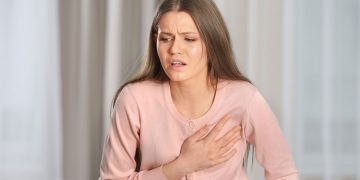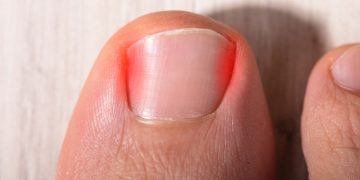Don’t be mislead by the name “Hay Fever” No, it is neither a type of fever nor it has got anything to do with hay.
Hay fever also known as Allergic rhinitis is an allergic reaction that mainly affects your nose.
You will develop Allergic rhinitis when your body’s immune system becomes oversensitive to certain allergens in the environment. There are two types of hay fever.
Seasonal: This type of allergic rhinitis occurs due to seasonal changes in the atmosphere, this includes airborne spores, pollens from flowers, trees, grass, and weeds.
Perennial: Symptoms of perennial allergic rhinitis can occur throughout the year and this is usually triggered by dust mites, pet hair, cockroaches or mold.
Rarely some people have to deal with both these types of hay fever. However, symptoms of perennial allergic rhinitis can get worse during pollen seasons.
Other than environmental factors, rhinitis can also be triggered due to irritants such as tobacco, perfumes, cleaning products with strong odors, etc…
Symptoms of Hay fever
- Nasal congestion
- Difficulty in breathing (especially during the night)
- Running nose
- Itchy and watery eyes
- Sneezing
- Cough
- Itchy nose, mouth, and throat
- Tiredness and fatigue
Common cold vs Hay fever
Many symptoms of hay fever are very similar to a common cold. Which makes it really hard to diagnose your condition. However, unlike the common cold, hay fever is not induced due to a viral infection. And there are some distinct differences between the two. Some of them are as follows.
Hay fever doesn’t cause any fever and the running nose has a thin watery discharge.
The common cold is usually accompanied by low-grade fever, and the running nose has watery or thick yellow discharge. It also accompanies body ache.
Hay fever usually occurs immediately after the exposure to any of the airborne or environmental allergens.
Common cold onset takes up to three to four days after exposure to the virus.
Common cold usually clears off by itself within three to seven days of its onset.
Hay fever lasts as long as you are exposed to the allergens.
What are the home remedies
It is better to get your condition checked with a trained physician if your symptoms of hay fever last over a week’s time. Also if your allergy medications fail to reduce your symptoms or gets worse.
While you try your best to reduce the symptoms with prescribed medications, try these alternative and folk remedies which might help to speed up the healing process.
Fenugreek tea
Fenugreek tea is believed to clear out your nasal passages, and sinuses and prevents irritation and congestion caused due to rhinitis.
Crush a teaspoon of fenugreek seeds and steep it in a glass of boiling water for 2 to 3 minutes. Filter out the seeds and drink the tea lukewarm. Add some honey if you want to make it more desirable.
Drink two to three cups of this tea every day until the symptoms disappear.
Nasal irrigation
Nasal irrigation not only clears your nose of specks of dirt, but it also clears off the allergens that might be sticking onto your nasal passages.
To start nasal irrigation, get a neti pot and fill it up with a warm saline solution. Pour this solution into each nostril twice a day.
Fish oils
Fish oils are well known for its anti-inflammatory nature. Consume fish oils will reduce the inflammation affecting the nasal pathways and ease your breathing. Follow the label for dosage recommendations.
Rosewater
Rosewater has drying, cooling, and anti-inflammatory properties. All of which helps to reduce the allergy symptoms and makes you feel better. Rosewater tincture can be taken internally, you can also spray some on the face and eyes.
Many users of rosewater claim it is effective with relieving itching, irritation, and inflammation. Another good thing about rosewater is, it has a pleasant smell.
Fresh honeycomb
Honeycomb works by decreasing your sensitivity to pollen. It is recommended that you start consuming fresh honeycomb on a daily basis in the months prior to the hay fever season.
Consume a piece of the honeycomb (about the size of a 10 pence) twice a day.








